

In the world of video games, there are certain things that are almost guaranteed to never happen. EA will probably never stop putting microtransactions in its games, Xbox and PlayStation fanboys will never get along, and the Atari 2600 will get a port of Crysis before Half-Life 3 is confirmed. And of course, Nintendo will never make games for mobile devices.
Except for the fact that Nintendo announced just that.
Just last year, the president of Nintendo, Satoru Iwata, said that Nintendo had no plans to make mobile games. However, it has apparently had a change of heart, as its just announced that it will be soon be creating games for mobile devices. Of course, this is referring to platforms such as Android and iOS – Nintendo has had its own mobile device line starting with the Game Boy up through the current New 3DS that plays its games.
Nintendo will be working with DeNa, a Japanese mobile gaming company that’s already been involved with lots of titles. You know the type:
You might not be able to tell from this video, but every single one of its games is of the same variety: free-to-play or freemium, where the game is free to install but forces the player to either wait or pay money to keep playing. Not all free games do this, but the vast majority feel more like moneymaking schemes than the experiences designed to delight that Nintendo is so well-known for. These games can drain your wallet in no time, and they’re certainly not a feature we want to see in a Zelda game.
Iwata explained that “smart devices touch so many people”, and so it would be a “waste not to use these devices.” Nintendo isn’t just dipping its toe in, either; the Nintendo president explicitly said that “we are challenging ourselves to redefine what Nintendo platforms mean.” Not many details on the types of games we’ll be seeing have been given, though Nintendo has made it clear that they won’t be porting classic titles over – so we won’t just be getting Super Mario. Bros with touch controls. If that’s what you’re interested in, you can easily do that using emulation on Android to play hundreds of retro games.
This might sound like amazing news if you’ve been wanting to play the latest Pokémon title on your iPad, or it might sound terrible if you’re a longtime Nintendo fan who feels like the company is selling out.
On one hand, Nintendo could be making an amazing decision here. It makes sense: the diehard Nintendo fans already own a Wii U, 3DS, or both, and so they likely won’t be the ones playing these mobile games. By moving onto iOS and Android, Nintendo is gaining access to a whole new group of people who would never touch a “traditional” video game consoles. It’s already had some slight forays into the freemium realm with Pokémon Shuffle and Rusty’s Real Deal Baseball, and you could argue those weren’t too bad.
It’s no secret the Wii U isn’t doing well (even though it has some advantages over the PS4 and Xbox One) and Nintendo expanding could be the boost the company needs. If someone tries a free Pokémon game on their phone and gets hungry for more, that could lead them to buy a 3DS; more revenue for Nintendo! Because of the lackluster sales of their home system, Nintendo has to be smart and prepare for a future where it doesn’t have the Wii printing money.
As it stands now, Nintendo seems to be going about the process wisely. This isn’t some knee-jerk reaction just to make some money right away; Nintendo is stressing that it must not just be its characters on iPhones, but Nintendo-quality experiences as well. Nintendo knows this isn’t its area of expertise and it has made a sizable investment in a company who is knowledgeable about mobile games, specifically the type that make truckloads of money from in-app purchases.
So, this isn’t some fool’s errand by Nintendo to make a quick buck. However, it isn’t all sunshine and pleasure. Nintendo’s move has serious implications that will likely be irreversible.
As a longtime Nintendo fan, I have serious concerns for what this move implies for the company and fans of its games. We’ve already established that many people who wouldn’t consider themselves gamers still check out mobile games. However, even with freemium titles, the vast majority of players don’t play for long, let alone pay up. Putting the money and energy into free games won’t be worth it if the games aren’t making a profit.
And what happens if these mobile games take off? If Nintendo is making insane money from Android games, and its home console is still lagging behind, which platform is it going to want to invest in? Sure, Wii U games make them $60 at a time, but if Nintendo puts all the energy into making one and it sells next to no copies, it’s a loss for the company.
Perhaps, if its mobile games become popular, Nintendo’s next move will be to make polished games on those platforms more akin to its first-party counterparts. After all, Nintendo has to follow the money, since that’s obviously why they’re doing this in the first place.
Following this trend, if mobile consumers of Nintendo’s titles decide they want full-blown Nintendo experiences to come to them instead of having to get a Wii U or 3DS, what’s the big N going to do? At that point, mobile gamers won’t be likely to pick up Nintendo’s consoles, so if Nintendo wants the money it’ll be forced to get better games to where consumers want them.
This is all about the financial aspects; what about the brand? Iwata said that Nintendo will be responsible when it comes to microtransactions, making sure that the IPs aren’t ruined or so full of in-app purchases that they aren’t safe for kids, but how long will this last? When the money starts to fly in due to the popular games, will the company compromise on this just a little to increase profits?
DeNA has a huge responsibility on its hands; it is carrying the weight of the medium’s longest-lived and most iconic characters. In the past, there have been both amazing and atrocious third-party uses of Nintendo characters. Masterpieces such as Metroid Prime or Donkey Kong Country Returns, both from Retro Studios, or the Zelda: Oracle games (emulate them on Android to see for yourself) from Capcom stand as some of the best. The other end of the spectrum carries the abysmal Zelda titles on the Philips CD-i, with infamous cutscenes and tedious gameplay.
Admittedly, some of my reservations on this decision come from my love of Nintendo. After all, games like Super Mario World, Star Fox 64, and Wario Land formed my love of video games as a child, and I’m certain I’m not the only one. It’s a huge change.
Ultimately, I hope that this does great things for Nintendo and that going mobile enables it to continue to make awesome experiences on its first-party consoles. Nintendo certainly not going anywhere soon, but something about seeing in-app purchases in a Mario platformer sickens me inside. Nintendo is all about magical experiences and innovation (Nintendo has invented products ahead of their time more than once), and freemium games are all about gouging the player to make money. The two are incompatible.
I’m against this decision, solely on the basis of preserving Nintendo’s brand. In a world of EA filling classic franchises with in-app purchases until they’re unrecognizable, Ubisoft stuffing Assassin’s Creed: Unity with temporary power-ups that can be bought for $100, and games like Evolve serving as DLC shells that are free-to-play experiences sold for full price, it was always nice to know that we could still look to Nintendo to follow the good old model of selling video games. Now, that’s gone and we’re never going back. Nintendo is in this for good.
Experience the joy of Nintendo with games that make incredible use of 3D on the 3DS, or step back and revisit hidden gems from the N64.
What’s your call on Nintendo’s decision: good or bad? Do you have personal memories of Nintendo like me, or do you perhaps despise freemium games no matter who makes them? Get a conversation started in the comments below.


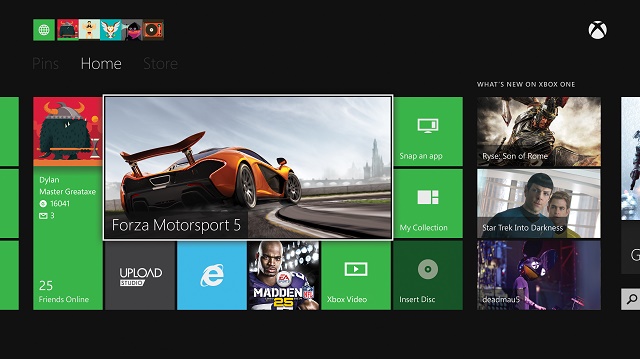
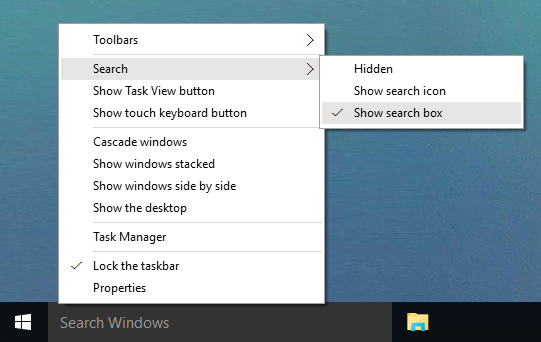
 Top 5 Best Free Flight Simulators
Top 5 Best Free Flight Simulators How to Beat Ludwig, The Accursed in Bloodborne: The Old Hunters
How to Beat Ludwig, The Accursed in Bloodborne: The Old Hunters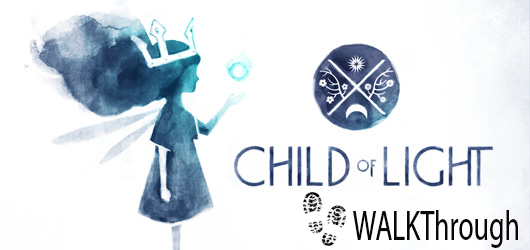 Child of Light Complete Walkthrough for All Chapters and System requirements
Child of Light Complete Walkthrough for All Chapters and System requirements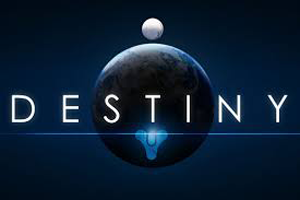 How to get the Best Warlock Chest Armor in Destiny
How to get the Best Warlock Chest Armor in Destiny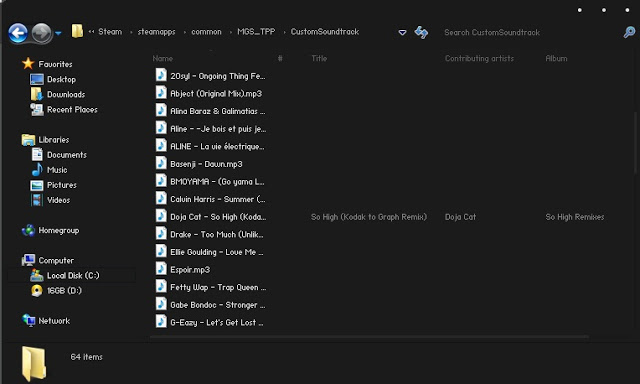 MGS 5 - The Phantom Pain add your own / favorite mp3 songs
MGS 5 - The Phantom Pain add your own / favorite mp3 songs